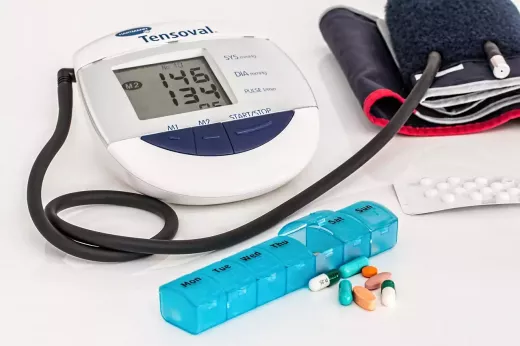Understanding Erectile Dysfunction
Before we dive into Cialis, it's essential to understand what causes ED. Erectile dysfunction can be caused by both physical and psychological factors. Physical causes of ED include diabetes, high blood pressure, heart disease, obesity, and low testosterone levels. Psychological causes of ED include stress, anxiety, depression, and relationship problems.
When a man is sexually aroused, his body releases nitric oxide, which stimulates the production of cGMP. cGMP relaxes the blood vessels in the penis, allowing blood to flow in and fill the spongy tissue inside the penis, leading to an erection. However, in men with ED, this process is disrupted, leading to difficulty achieving or maintaining an erection.
What is Cialis?
Cialis is a medication used to treat ED. It belongs to a class of drugs known as PDE5 inhibitors. PDE5 inhibitors work by blocking the action of PDE5, an enzyme that breaks down cGMP. By blocking PDE5, Cialis increases the levels of cGMP, leading to increased blood flow to the penis and improved erectile function.
Cialis is available in different strengths, including 2.5mg, 5mg, 10mg, and 20mg tablets. The recommended starting dose of Cialis is 10mg, taken at least 30 minutes before sexual activity. Cialis can be taken with or without food, but it may take longer to work if taken with a high-fat meal.
How Does Cialis Work?
Cialis works by increasing blood flow to the penis, allowing men to achieve and maintain an erection for longer periods of time. The active ingredient in Cialis is tadalafil. Tadalafil works by blocking PDE5, an enzyme that breaks down cGMP. By blocking PDE5, tadalafil increases the levels of cGMP, leading to increased blood flow to the penis and improved erectile function.
Cialis is different from other ED medications in that it has a longer half-life. The half-life of Cialis is around 17.5 hours, which means that it remains active in the body for up to 36 hours. This longer half-life allows men to take Cialis less frequently than other ED medications, making it a more convenient option for many men.
Advantages of Cialis over Other ED Medications
Cialis has several advantages over other ED medications. One of the most significant advantages of Cialis is its longer half-life. As mentioned earlier, Cialis remains active in the body for up to 36 hours, allowing men to take it less frequently than other ED medications.
Another advantage of Cialis is its faster onset of action. While other PDE5 inhibitors, such as Viagra, may take up to an hour to start working, Cialis can start working within 30 minutes of taking the pill.
Additionally, Cialis can be taken with or without food, which makes it a more convenient option for men who may not want to plan sexual activity around meals.
Dosage and Administration of Cialis
The recommended starting dose of Cialis is 10mg, taken at least 30 minutes before sexual activity. The maximum recommended dose of Cialis is 20mg, taken once daily. Cialis should not be taken more than once a day.
Cialis can be taken with or without food, but it may take longer to work if taken with a high-fat meal. It's essential to follow the instructions provided by your healthcare provider when taking Cialis.
Possible Side Effects of Cialis
Like all medications, Cialis can cause side effects. The most common side effects of Cialis include headache, back pain, muscle aches, flushing, and indigestion. These side effects are usually mild and go away on their own.
Less common side effects of Cialis include sudden vision loss, sudden hearing loss, and priapism (a painful erection that lasts longer than four hours). If you experience any of these side effects, seek medical attention immediately.
Precautions and Contraindications of Cialis
Cialis may not be suitable for everyone. Before taking Cialis, it's important to discuss your medical history with your healthcare provider. You should not take Cialis if you are taking nitrates for chest pain or if you have severe liver or kidney problems.
Additionally, you should not take Cialis if you have had a recent heart attack or stroke or if you have low blood pressure. It's essential to talk to your healthcare provider about any medications you are taking, as some medications may interact with Cialis.
Cialis vs. Viagra: Which is Better for ED?
Cialis and Viagra are both medications used to treat ED. While both medications belong to the same class of drugs (PDE5 inhibitors) and work in a similar way, there are some differences between the two medications.
One of the most significant differences between Cialis and Viagra is their half-life. As mentioned earlier, Cialis has a longer half-life than Viagra, which means that it remains active in the body for up to 36 hours compared to Viagra's four to six hours.
Additionally, Cialis can be taken with or without food, which makes it a more convenient option for some men. However, Viagra may start working faster than Cialis, with some men experiencing an erection within 30 minutes of taking the pill.
Ultimately, the choice between Cialis and Viagra depends on individual preferences and needs. It's essential to talk to your healthcare provider about which medication may be right for you.
Frequently Asked Questions about Cialis
Q: How long does it take for Cialis to start working? A: Cialis can start working within 30 minutes of taking the pill.
Q: How long does Cialis last? A: Cialis remains active in the body for up to 36 hours.
Q: Can I take Cialis with food? A: Yes, Cialis can be taken with or without food.
Q: What are the side effects of Cialis? A: The most common side effects of Cialis include headache, back pain, muscle aches, flushing, and indigestion.
Q: Is Cialis safe? A: Cialis is generally safe when taken as directed by a healthcare provider.
Is Cialis Right for You?
If you are experiencing ED, Cialis may be a suitable treatment option for you. However, it's essential to talk to your healthcare provider about your medical history and any medications you are taking before starting treatment with Cialis. Your healthcare provider can help determine if Cialis is right for you and provide guidance on dosage and administration. With the right treatment, ED can be effectively managed, allowing you to enjoy a healthy and fulfilling sex life.









